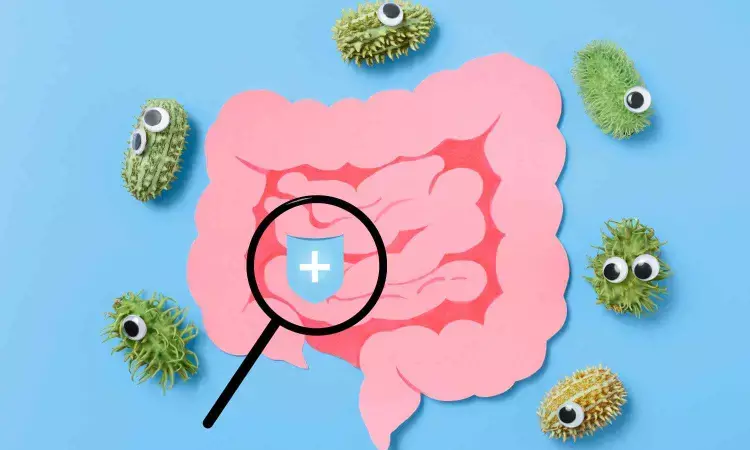- Home
- Medical news & Guidelines
- Anesthesiology
- Cardiology and CTVS
- Critical Care
- Dentistry
- Dermatology
- Diabetes and Endocrinology
- ENT
- Gastroenterology
- Medicine
- Nephrology
- Neurology
- Obstretics-Gynaecology
- Oncology
- Ophthalmology
- Orthopaedics
- Pediatrics-Neonatology
- Psychiatry
- Pulmonology
- Radiology
- Surgery
- Urology
- Laboratory Medicine
- Diet
- Nursing
- Paramedical
- Physiotherapy
- Health news
- Fact Check
- Bone Health Fact Check
- Brain Health Fact Check
- Cancer Related Fact Check
- Child Care Fact Check
- Dental and oral health fact check
- Diabetes and metabolic health fact check
- Diet and Nutrition Fact Check
- Eye and ENT Care Fact Check
- Fitness fact check
- Gut health fact check
- Heart health fact check
- Kidney health fact check
- Medical education fact check
- Men's health fact check
- Respiratory fact check
- Skin and hair care fact check
- Vaccine and Immunization fact check
- Women's health fact check
- AYUSH
- State News
- Andaman and Nicobar Islands
- Andhra Pradesh
- Arunachal Pradesh
- Assam
- Bihar
- Chandigarh
- Chattisgarh
- Dadra and Nagar Haveli
- Daman and Diu
- Delhi
- Goa
- Gujarat
- Haryana
- Himachal Pradesh
- Jammu & Kashmir
- Jharkhand
- Karnataka
- Kerala
- Ladakh
- Lakshadweep
- Madhya Pradesh
- Maharashtra
- Manipur
- Meghalaya
- Mizoram
- Nagaland
- Odisha
- Puducherry
- Punjab
- Rajasthan
- Sikkim
- Tamil Nadu
- Telangana
- Tripura
- Uttar Pradesh
- Uttrakhand
- West Bengal
- Medical Education
- Industry
Some gut bacteria could make certain drugs less effective, reveals research

A new study, published today in Nature Chemistry by researchers from the University of Pittsburgh and Yale University, shows how common gut bacteria can metabolize certain oral medications that target cellular receptors called GPCRs, potentially rendering these important drugs less effective.
Drugs that act on GPCRs, or G protein-coupled receptors, include more than 400 medications approved by the U.S. Food and Drug Administration (FDA) for treatment of many common conditions such as migraines, depression, type 2 diabetes, prostate cancer and more.
“Understanding how GPCR-targeted drugs interact with human gut microbiota is critical for advancing personalized medicine initiatives,” said first author Qihao Wu, Ph.D., assistant professor in the Pitt School of Pharmacy, who started this project as a postdoctoral researcher at Yale. “This research could help open up new avenues for drug design and therapeutic optimization to ensure that treatments work better and safer for every individual.”
The effectiveness of a drug varies from person to person, influenced by age, genetic makeup, diet and other factors. More recently, researchers discovered that microbes in the gut can also metabolize orally administered drugs, breaking down these compounds into different chemical structures and potentially altering their efficacy.
To learn more about which gut bacteria metabolize which drugs, Wu and the team at Yale, including the labNature Chemistrys of Jason Crawford, Ph.D., Noah Palm, Ph.D., and Andrew Goodman, Ph.D., built a pipeline to rapidly and efficiently test this in the lab. They started by building a synthetic microbial community composed of 30 common bacterial strains found in the human gut. To tubes containing the bacteria, they added each of 127 GPCR-targeting drugs individually. Then they measured whether these drugs were chemically transformed and, if so, which compounds were produced.
The experiment showed that the bacterial mix metabolized 30 of the 127 tested drugs, 12 of which were heavily metabolized, meaning that concentrations of the original drug were greatly depleted because they were transformed into other compounds.
Next, the researchers looked more closely at one heavily metabolized drug called iloperidone, which is often used to treat schizophrenia and bipolar I disorder. One bacterial strain in particular, Morganella morganii, inactivated iloperidone by transforming it a range of different compounds, both in the lab and in mice.
Overall, the findings suggest that specific gut bacteria could make GPCR-targeting drugs less effective by transforming them into other compounds.
However, Wu cautioned that more research is needed to understand potential impacts in people and that patients shouldn’t stop taking or change their medication without consulting their provider.
Although the study focused on a subset of GPCR drugs, the approaches could be applied more broadly to any orally administered chemicals, according to Wu.
“Another potential application of this pipeline is investigating interactions between gut bacteria and compounds found in food,” he said. “For example, we identified a couple of phytochemicals in corn that may affect gut barrier function. Notably, we observed that the gut microbiome could potentially protect us from these phytochemicals by detoxifying them.”
The next goal of the Wu Lab is to decode the metabolic pathway underlying these biotransformations, which could potentially identify strategies for improving therapeutic efficacy and enhancing food and drug safety.
Reference:
Wu, Q., Song, D., Zhao, Y. et al. Activity of GPCR-targeted drugs influenced by human gut microbiota metabolism. Nat. Chem. (2025). https://doi.org/10.1038/s41557-025-01789-w
Dr Kamal Kant Kohli-MBBS, DTCD- a chest specialist with more than 30 years of practice and a flair for writing clinical articles, Dr Kamal Kant Kohli joined Medical Dialogues as a Chief Editor of Medical News. Besides writing articles, as an editor, he proofreads and verifies all the medical content published on Medical Dialogues including those coming from journals, studies,medical conferences,guidelines etc. Email: drkohli@medicaldialogues.in. Contact no. 011-43720751


